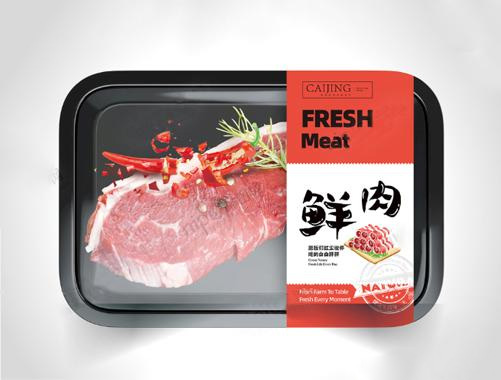How to maintain the stability of adhesive labels for a long time?
1. Choose suitable materials
Some low-cost materials may not have long-lasting stickiness, so when choosing adhesive labels, higher quality sticker materials can be considered and selected based on actual usage scenarios. For example, on products that require long-term attachment, it is recommended to use adhesive labels with strong adhesive strength to ensure that they can adhere tightly to the surface
2. Pay attention to storage conditions
It is recommended to store it in a dry, ventilated place away from direct sunlight, and not to expose it to moisture, high or low temperatures for a long time. Meanwhile, it is also important to avoid contact with water and oily substances as much as possible during use
3. Ensure surface cleanliness
Before labeling, ensure that the surface of the object being labeled is clean and tidy, and clean it with detergent or cleaning solution. This can effectively enhance the stickiness of the label and ensure that the label can maintain stability for a long time
4. Scientific Construction
Properly handle the air and moisture between the label and the object being labeled to ensure a tighter fit of the label. A common method is“ Flattening method;, When pasting labels, first place the label flat on the object to be pasted, then gently press the label to make contact with the object to be pasted, and then press the entire label firmly to make it completely adhere
In summary, maintaining the adhesive stability of self-adhesive labels requires attention to multiple aspects such as material selection, storage conditions, surface cleanliness, and construction methods. Only by putting in enough effort on these details can we ensure that the label maintains good adhesion and does not fall off during use

How to choose frozen food adhesive labels?
Frozen food labels, also known as low-temperature resistant labels and low-temperature labels, are mainly used in sub zero environments such as refrigeration, freezing, ultra-low temperature, liquid nitrogen, etc. Today, I will take you to learn about frozen food adhesive labels; Frozen food labels are mainly made of glass faced cardboard, thermal paper, adhesive paper, etc., which have excellent low-temperature bonding performance, strong water resistance, and strong bonding performance to PP and PE cling film. They can be widely used in frozen food or beverage content labels, price labels, etc
Frozen food refers to food that is of qualified quality, processed appropriately, and subjected to rapid freezing at a temperature of -30 degrees Celsius. After packaging, it is stored and circulated at a temperature of -18 degrees Celsius or lower. Due to the use of low-temperature cold chain storage throughout the process, frozen foods have the characteristics of long shelf life, low spoilage, and convenient consumption. However, this also poses greater challenges and higher requirements for packaging and labeling materials
Environmental characteristics of cold storage
High humidity and low temperature make it easy for ordinary labels to deform, wrinkle, and fall off in cold storage. Moreover, there are various forms of packaging for items in cold storage. The label selected in such an environment must have good moisture resistance and low temperature resistance characteristics. There are various types of adhesive for labels, and low-temperature adhesive must be selected for labels in cold storage
If the label is pasted at room temperature and then placed in the cold storage, the surface paper of the label should be selected with a certain degree of elasticity. Due to the fact that the packaging form of the item may be ordinary paper packaging or nylon bag packaging, different materials of labels can be selected according to the needs. It is recommended to try for a short period of time before deciding whether to use a certain material in the end
Why does the adhesive label material bubble?
1. Uneven application of strong adhesive: The surface of self-adhesive label material consists of three parts: surface material, adhesive, and backing paper. The design scheme of the labeling punching machine wheel is poor, and the working pressure is insufficient.
2. Electrostatic effect: For plastic film materials, electrostatic induction can also cause bubbles on the label.
3. Improper speed adjustment and labeling method of the labeling machine: During labeling, the operating speed of the bottle body should be slightly faster than the labeling rate, which can also avoid the occurrence of bubbles.
4. Before labeling, static electricity should be completely eliminated to make the label stand upright and free from the backing paper.
5. Brushes, sponge rollers, and vacuum pumps should not be used for labeling in the labeling machine. A vulcanized rubber scraper with a certain hardness should be installed to touch the label and maintain a certain direction and amplitude of the scraper. The labeling of soft bottles requires adjusting the labeling speed, scraper amplitude, viewing angle, and spacing in between.
We offer comprehensive technical support, including free professional labeling solutions, advice on label materials and adhesive selection, as well as online/offline assistance from professional software and hardware engineers. Service email: andy@ownlikes.cn. In pre-sales, we leverage our extensive experience in specialty labeling projects to provide clients with the most suitable hardware solutions. Additionally, all our label barcode printers and scanners come with a three-year free warranty, demonstrating our confidence in our products.




